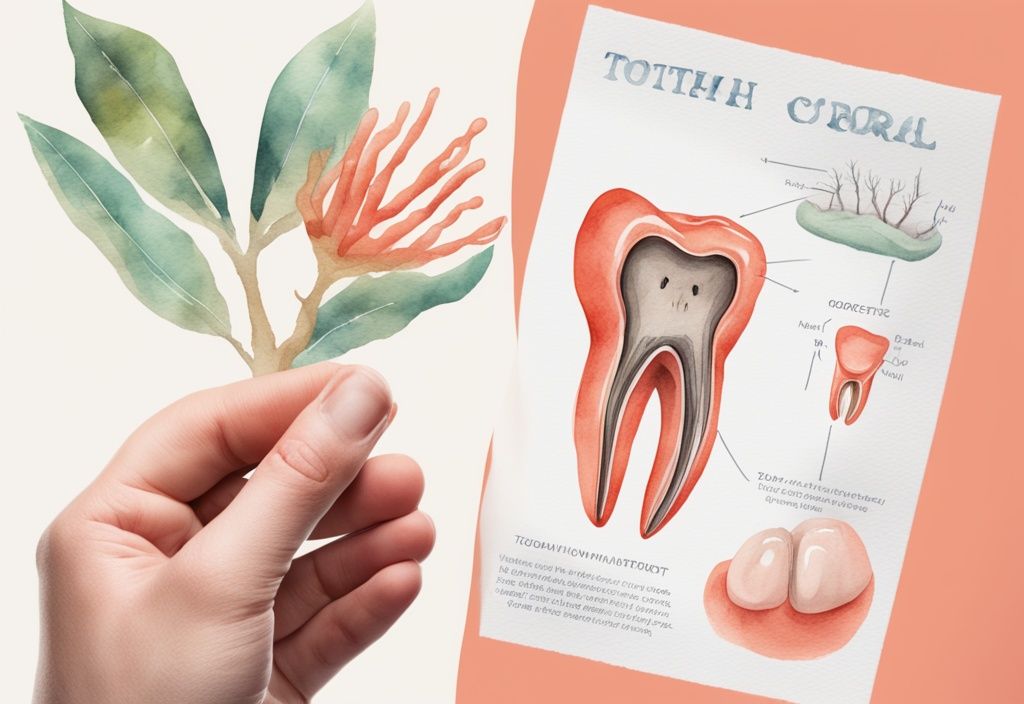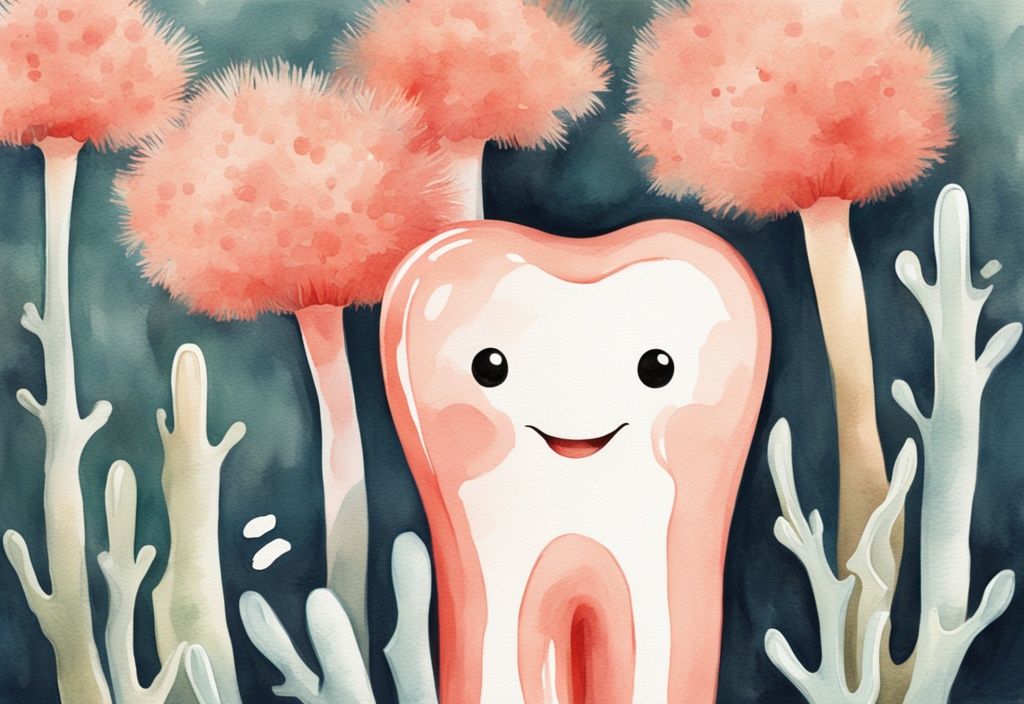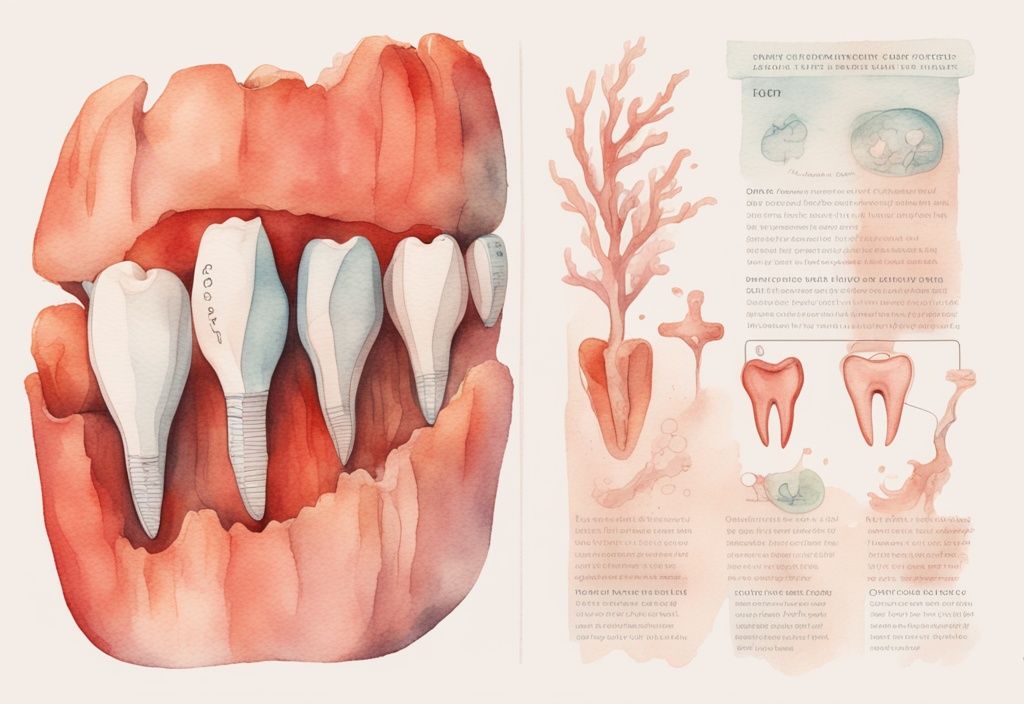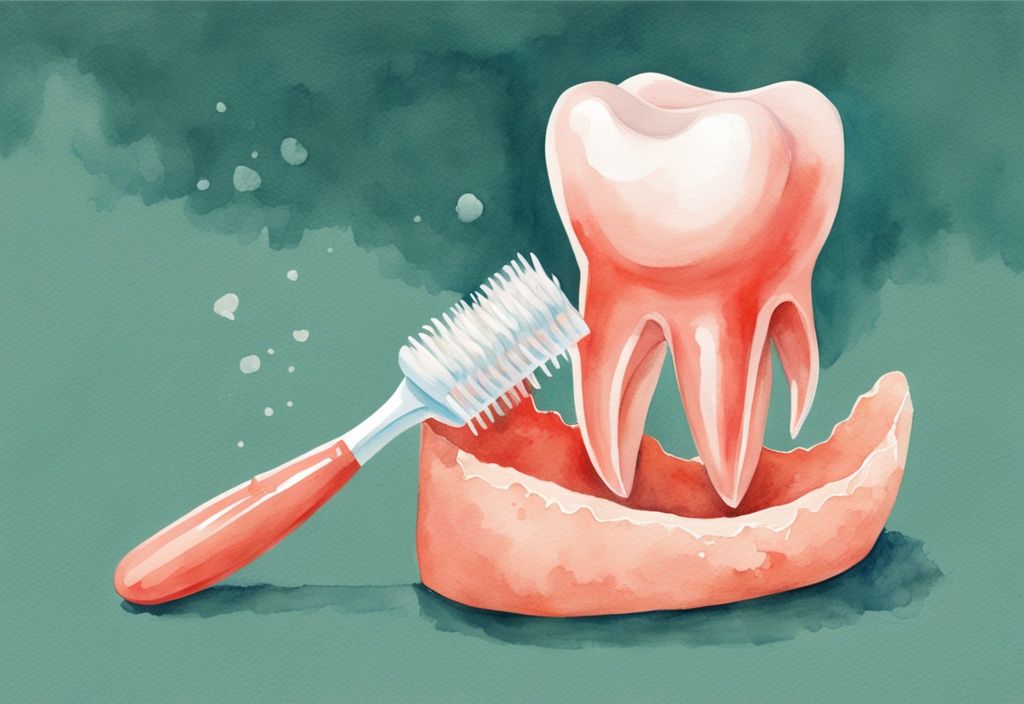Hey there friends! Ever found yourself puzzled, exploring the tiny tooth that your little one just lost and wondering, “Do baby teeth have roots when they fall out?” I bet this question has popped up a time or two in the tumultuous journey of parenting.
Well, you’re in luck! In this article, we’ll decode the mysteries surrounding this enigma. We’ll take a deep dive into the anatomy of baby teeth, and get to the root of the matter (pun intended!). We’ll talk about the root resorption process, and why these transient ‘milk teeth’ are more important than you might think in laying the foundation for your child’s future dental health.
I’m with you in this intriguing exploration. Let’s dive in and transform these perplexing moments into delightful learning opportunities.
Understanding Baby Teeth and Their Roots
Baby teeth, or primary teeth, are a pivotal part of your child’s dental journey. Despite their temporary nature, these teeth have a detailed structure, quite like adult teeth, featuring a crown and a root. The crown, visible above the gum line, plays a critical role in daily activities like chewing and speaking. Hidden beneath the gums, the roots of baby teeth anchor them in place. Although these roots are shorter and less sturdy compared to permanent teeth, they’re perfectly designed for the temporary job they perform in your child’s mouth.
The Anatomy of Baby Teeth
Each baby tooth consists of two major parts: the crown and the root. The crown, the part you see gleaming when your little one smiles, is essential for biting and chewing. But there’s more than meets the eye! The root is securely nestled within the gums, offering the necessary stability.
These roots might not be as long-lasting as those of adult teeth, but they are essential for your child’s oral development. They are specifically crafted to fulfill their temporary purpose, making them a fascinating aspect of our children’s growth.
The Role of Roots in Baby Teeth
The roots of baby teeth are more than just supporters; they are vital for the overall health and functionality of the teeth. When the baby teeth roots anchor firmly in the jawbone, they ensure that the teeth maintain their correct position. This stability helps with chewing, speaking, and even smiling without any discomfort.
Interestingly, the roots also have a sensory role. They enable your child to feel pressure and texture through their teeth, contributing to a more enjoyable eating experience. Healthy roots are key to keeping baby teeth in place until they naturally give way to permanent teeth.
Why Baby Teeth Have Roots?
Wondering, “Do baby teeth have roots when they fall out?” The answer is yes, and these roots are crucial.
Invalid YouTube video ID
The roots hold the baby teeth in place, ensuring they can fulfill their roles until it’s time for them to make way for permanent teeth.
These roots guide permanent teeth into their correct positions, aiding in a smooth transition from primary to adult dentition. As permanent teeth prepare to emerge, the roots of the baby teeth start to resorb. This natural process makes sure that baby teeth fall out effortlessly, creating space for their successors.
Maintaining healthy baby teeth and their roots is essential for ensuring a trouble-free dental transition. After all, each step in your child’s dental development is a building block for their lifelong oral health.
How Baby Teeth Exit: The Root Resorption Process
Ever wondered what happens to baby teeth as they make way for those dazzling permanent teeth? Let’s dive into the fascinating journey of root resorption and understand why those cute little teeth fall out the way they do.
Root Resorption Explained
Baby teeth undergo an intriguing process known as root resorption, also called rhizalysis, as they prepare to say goodbye. Root resorption occurs as permanent teeth start emerging beneath the baby teeth. During this natural process, the body gradually absorbs the roots of the primary teeth. This transformation is crucial for making space for the new teeth, ensuring they can pop up without any obstacles.
The process kicks off when permanent teeth begin to push against the roots of the baby teeth. This gentle pressure ignites the breakdown and eventual absorption of the root structure. Over time, the roots become shorter and more fragile until they eventually vanish. This leads to the baby tooth becoming wobbly and eventually falling out. Think of it as nature’s way of making the transition from primary to permanent teeth smooth and seamless.

Why Do Baby Teeth Fall Out Without Roots?
It’s a common question that pops up: “Do baby teeth have roots when they fall out?” The magic of root resorption holds the answer. As mentioned, baby teeth often fall out rootless because the roots have already been absorbed by the body. This ensures that baby teeth fall out easily, paving the way for those permanent teeth without any hindrance.
The loss of roots is essential for the timely and painless shedding of baby teeth. As the permanent teeth grow and press against the baby teeth, root resorption ensures that the baby teeth fall out at just the right moment and with minimal discomfort. So, when a baby tooth is ready to take its leave, most, if not all, of its roots have been resorbed. This intricate process highlights the importance of roots in baby teeth, even though you don’t see them when they finally fall out.
Does Every Baby Tooth Have a Root?
The Variety in Baby Teeth Root Development
Understanding the development of roots in baby teeth can clarify why they fall out the way they do. Each type of baby tooth has a distinct root structure designed to support its function and future replacement by permanent teeth. Surprisingly, do baby teeth have roots when they fall out is a common question among parents.
For instance, anterior primary teeth, which include incisors and canines at the front of the mouth, possess single, longer, and narrower roots. These roots are essential for the initial stages of chewing and speaking, ensuring that the teeth stay firmly in place until it’s time for them to fall out. This root structure significantly contributes to the question, “do baby teeth have roots when they fall out?” because they need to resorb properly to make way for their permanent successors.
On the other hand, primary molars, located at the back of the mouth, have more complex root systems. They typically have multiple slender and flared roots. The reason for this configuration is to create enough space and support for the development and emergence of permanent teeth. These roots are particularly important for grinding food during the earlier stages of a child’s development.
When considering the overall root structure, it becomes clear why baby teeth are able to function effectively in a child’s mouth, and why their roots must undergo resorption. The overarching role of these roots is to support the baby teeth in maintaining proper oral health and alignment as the child’s mouth develops. Thus, do baby teeth have roots when they fall out can be answered by understanding the necessity and function of these roots prior to their resorption.
When Things Don’t Go as Expected: Potential Problems
In the unpredictable world of baby teeth, things don’t always go as planned. Here are some potential issues that might arise:
Signs of a Broken Baby Tooth with the Root Still in the Gum
Sometimes, those tiny teeth can go through a bit of a trauma. Picture this: your little one has a fall, and the baby tooth, instead of staying put, breaks off, leaving a piece of its root stuck in the gum. What might this look like? You might see a tooth that’s smaller than usual or notice the lack of its pointy tip.

This often happens if a baby tooth is knocked out a bit too early due to an accident. The remaining root can be a sneaky little culprit, causing pain or discomfort and even leading to an infection if not taken care of. Paying a visit to the dentist pronto is super important. They can figure out the best way to keep your child’s smile healthy and happy.
What If Root Resorption Doesn’t Happen Properly?
Normally, our kiddos’ baby teeth are supposed to fall out when the roots naturally dissolve – thanks to the process called root resorption. But, let’s face it, sometimes nature needs a little extra nudge. If root resorption drags its feet, a baby tooth might overstay its welcome, blocking the path for that emerging permanent tooth. It’s like a game of musical chairs where the new tooth can’t find a place to sit!
This can sometimes be due to conditions like hypodontia, where the permanent tooth is missing altogether. If your child is feeling consistent pain, or those baby teeth are taking forever to say goodbye, it’s time to consult with a dentist. They can help navigate the situation, ensuring your child’s dental development stays on track. Don’t worry – with the right guidance, those pearly whites will find their proper place.
Importance of Baby Teeth: More Than Just Temporary Teeth
Caring for Baby Teeth to Ensure a Healthy Root Resorption Process
Proper care and diligent treatment of baby teeth are essential to ensure they stay healthy until they naturally fall out. Start early to protect tooth health by learning more about maintaining oral hygiene for your children at this resource. Even though baby teeth are temporary, their health significantly impacts the overall dental development of a child. One might wonder, do baby teeth have roots when they fall out? The answer lies in understanding their lifecycle and the process of root resorption.
Regular checkups with a pediatric dentist play a critical role in monitoring the health and alignment of baby teeth. These visits help in identifying any potential issues early on, ensuring that teeth remain in optimal condition. Consistent dental hygiene practices, such as brushing twice a day with a fluoride toothpaste and flossing, contribute to the longevity and health of baby teeth, facilitating a smooth root resorption process.
Ensuring baby teeth remain free of decay and damage is vital. This preventive care protects the teeth from premature loss, which can disrupt the natural process of their transition. Avoiding foods high in sugar and maintaining a balanced diet further assists in keeping baby teeth healthy, thereby supporting a healthy root resorption process.
How Baby Teeth Guide the Successor Permanent Teeth
Baby teeth are fundamental in guiding the alignment and positioning of permanent teeth. Often asked, do baby teeth have roots when they fall out? Understanding this can clarify their role in dental development. These roots, while shorter and weaker compared to permanent teeth, are imperative in holding the teeth in place and maintaining space within the jaw. For parents interested in providing nutritious meals, learning how to cook butternut squash for a baby can be beneficial.
The primary function of baby teeth includes preserving the necessary space for permanent teeth to erupt correctly. If a baby tooth is lost prematurely, the neighboring teeth can drift into the vacant space, causing misalignment. This can lead to crowded or crooked permanent teeth, complicating future orthodontic treatment.
Moreover, the aligned arrangement of baby teeth ensures that the succeeding permanent teeth follow a proper eruption timeline and position. This natural guidance system helps in avoiding bite issues and supports efficient chewing and speaking. Therefore, maintaining healthy baby teeth through proper care practices and regular dental visits is essential for the seamless transition and correct alignment of permanent teeth.
Elevating awareness about the significant role baby teeth play, beyond their temporary nature, highlights the importance of attentive care and dental health monitoring from an early age.
Monitoring Your Child’s Dental Development
The Role of Regular Dental Check-ups in Tracking Root Resorption
Regular dental check-ups are essential for closely monitoring how baby teeth roots are resorbing. These visits are like little dental milestones, ensuring everything is on track as your child’s permanent teeth prepare to make their grand entrance. Without these check-ups, we might miss early signs of dental misalignment or baby teeth overstaying their welcome, causing bigger issues later on.
During these visits, dentists can spot any hiccups in the resorption process. Detecting problems early means addressing them early, helping your child transition smoothly from baby teeth to permanent teeth. This also helps answer the important question do baby teeth have roots when they fall out, confirming that roots are dissolving properly, making room for the new teeth.
When Is the Right Time to Visit a Pediatric Dentist?
Consulting a pediatric dentist at the right moments is key to your child’s dental health. For instance, if a baby tooth gets bumped hard due to a fall, seeing a dentist immediately can prevent premature loss or damage. Also, don’t ignore any lingering pain—it’s a sign to get those pearly whites checked out to rule out any hidden problems with the tooth or its root.
Regular dental check-ups should start early and be a familiar routine. These visits allow the dentist to keep an eye on the health and development of baby teeth, ensuring that the root resorption process is happening as it should. The question, do baby teeth have roots when they fall out, often comes up during these visits, where the dentist reassures that root resorption is on course.

By staying on top of these check-ups, we’re making sure that any small issues are caught early, making the whole transition to permanent teeth as smooth as possible. Plus, you’ll get handy tips on keeping those baby teeth clean and healthy along the way.
FAQ for Parents Concerned About Baby Tooth Roots
Being a parent comes with so many questions, especially when it comes to those tiny baby teeth. Let’s address some of the common concerns about baby tooth roots.
Can a Baby Tooth Fall Out With the Root Still Intact?
Typically, baby teeth do not have roots when they fall out due to the root resorption process. This natural process ensures that by the time a baby tooth is ready to be shed, most of its root structure has been absorbed. However, in some cases where resorption is incomplete, a baby tooth might fall out with some or all of its root intact.
The good news is, even in these rare scenarios, the remaining root material usually dissolves over time. So, there’s minimal chance of any long-term issues. If you notice that your child’s baby tooth has fallen out with a root intact, it’s best to consult a dentist to ensure there are no complications.
Why is it Important to Care for Baby Teeth If They Will Fall Out?
Even though baby teeth will eventually fall out, it’s essential to care for them. They play a crucial role in enabling children to chew food properly and articulate speech clearly. Healthy baby teeth also help maintain the necessary space in the jaw for correct alignment and eruption of permanent teeth.
Preventing decay and damage through proper care can avert early loss of baby teeth, which could lead to alignment issues or difficulty in maintaining good oral hygiene. Therefore, taking care of baby teeth sets a strong foundation for overall dental health and a smoother transition to adulthood’s permanent dentition.
Conclusion
Understanding the anatomy and importance of baby teeth roots is essential for parents navigating their child’s dental development. Baby teeth, though temporary, play significant roles in guiding the alignment and eruption of permanent teeth, chewing, and speaking. It’s fascinating to realize that baby teeth do indeed have roots when they fall out, but these roots go through a natural resorption process which makes their removal easier.
Regular dental visits and proper care can ensure a smooth transition from baby teeth to permanent teeth. Routine check-ups with a pediatric dentist monitor the health and alignment of both baby teeth and emerging permanent teeth. If you’re interested in preserving childhood memories in a unique way, you might want to learn how to bronze baby shoes. Maintaining healthy baby teeth through proper dental hygiene and timely consultations can help prevent issues such as misaligned permanent teeth or delays in root resorption.
Being aware of the natural root resorption process helps in anticipating and managing children’s dental development. When a baby tooth falls out, it’s often because the roots have been naturally absorbed by the body, easing the tooth’s removal and making room for the permanent successor. However, in rare cases, root resorption might not occur properly, highlighting the importance of consulting a dentist if there are any signs of delay or pain.
By understanding the significance of baby teeth roots and the process of their resorption, parents can foster a healthier dental journey for their children. Practicing good oral hygiene, seeking regular dental advice, and being informed about the natural changes in a child’s mouth are key strategies for ensuring a seamless transition from baby teeth to permanent teeth.

